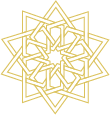
Originally by Bo Emerson – The Atlanta Journal-Constitution

Ibtisam Barakat is a Palestinian poet and autobiographer whose memories of the 1967 Six-Day War between the Arabs and the Israelis, which took place when she was 3 years old, became the evocative account “Tasting the Sky: A Palestinian Childhood.”
Her newest book, “Balcony on the Moon: Coming of Age in Palestine,” published last month, continues the story of her girlhood, from elementary school through high school. Barakat, 53, will discuss the book at 3 p.m. Sunday at the Center for Civil and Human Rights in Atlanta, in a free event co-sponsored by the Alif Institute. It will be followed by a reception at 4 p.m.
An American citizen since 1992, Barakat lives in Columbia, Mo., where she writes in both Arabic and English, has taught at Stephens College and conducts seminars for budding memoirists called “Write Your Life.”
She spoke recently about her childhood and about her life as a writer, an American and a Muslim.
On the two places near to her heart, the United States and Palestine:
“Both places are home for me. Both places are native to me. I do not see barriers that other people see.”
On the responsibilities of freedom:
“I was an individual who happened to live half of my life in occupation, in a tremendous deprivation of human rights based on my race. I can now vote and think, do and undo. I can experiment. I can know about endless numbers of issues and make up my own mind. Having had no freedom, and having been given a lot of freedom, I don’t take my freedom for granted. I engage my freedom on a daily basis.”
On arguments following the U.S. presidential election:
“I hear that after the elections, people wanted to be with like-minded people. That is segregation. Then you don’t have to deal with the thinking of the other groups, you don’t have to grow, you don’t have to respond.”
On being a Muslim in the United States:
“I don’t understand a world that already judges me because I’m from the Middle East, because I’m a person of color, because I have a name people can’t say easily — I have to teach people my name. It created barriers to belonging. It made me sad a lot. It still makes me sad.”
On her political activism:
“What I like to accomplish in my writing and my books and my speaking is less polemic and more honesty and more emphasis on the human being, the individual. And the fact that every time we exclude a human being, we lose the big picture of life. We can’t exclude hydrogen and still have a planet!”
On racism:
“We suffered from racism and we also perpetuated racism. Now we look at the world and racism is everywhere. I refuse to just call out the Israeli racism against us, without acknowledging that they have been wounded by racism, by all the anti-Semitism, and they are passing the wound on to us.”
On putting her mother’s home village, Kharruba, which has been erased, on the map at the front of the book:
“Now it is in Israel. It’s a depopulated village. Mom has never been able to go back to her village. I told her I was going to put Kharruba on the map again. … I put that in for my mom so she could see where it was. It is now a part of history. It’s not about satisfaction; it’s about existence.”
EVENT PREVIEW
Ibtisam Barakat
3 p.m. Nov. 20. Free. Center for Civil and Human Rights, 100 Ivan Allen Jr. Blvd., Atlanta. 678-999-8990, civilandhumanrights.org.


